Hello all! My name is Julian Creutz (he/him), and as of summer 2024, I’m a rising sophomore in LSA studying creative writing and literature through the Residential College. I have hopes to continue my education and attain a Master of Library Science, and then move into a career in academic librarianship. I also adore writing (hence my major) and have dreams to be a published author!
The project I was a part of through Michigan Library scholars was initially titled “Internationalizing the Seed Library,” but as my mentors continually discussed the importance of language with myself and my co-intern, SJ, we ended up reterming the project “Borderless Seed Stories” to better reflect our values and understanding of the work we were doing. The initial goal was to develop an exhibit (set to run from November 11th, 2024 to January 10th, 2025) showcasing U-M international community members and their stories, but as the internship progressed, that goal for the exhibit focus shifted and expanded slightly to include showcasing local food sovereignty efforts through oral histories conducted by SJ, featuring oral history collections that already existed in the community, and compiling and presenting literary and archival research (with a smattering of images and poetry). The drafted exhibit was our main deliverable, with several goal posts along the way, and that was accomplished!
My role fell into the literary and archival research side, though this role only developed about halfway through the internship. Initially, we as a team were all-in on the oral histories, but as time went on and I continued to read and compile notes, we realized we wanted to expand our scope, and my concentrated literary and archival research began! I compiled sources ranging from blog posts to academic studies to books and worked together with the rest of the team to figure out the salient themes across all of the resources. From a list of around 20 (yes, 20!) themes, we were able to condense everything into five overarching topics: 1. Geopolitical and Colonial Borders, 2. Reclamation and Rematriation, 3. Seed Sharing, 4. Seed Literacy, Skills and Community Knowledge, and 4. Seed Sovereignty.
I spent most of the latter half of the internship organizing resources, finding the perfect quotes, developing the actual text of the exhibit, searching for relevant images, and formatting the drafts for the panels on which the final exhibit will actually go. The process took several weeks and a lot of intense thinking, writing, deleting, and rewriting to get to where it ended up. I’ve included some images of what the process looked like!
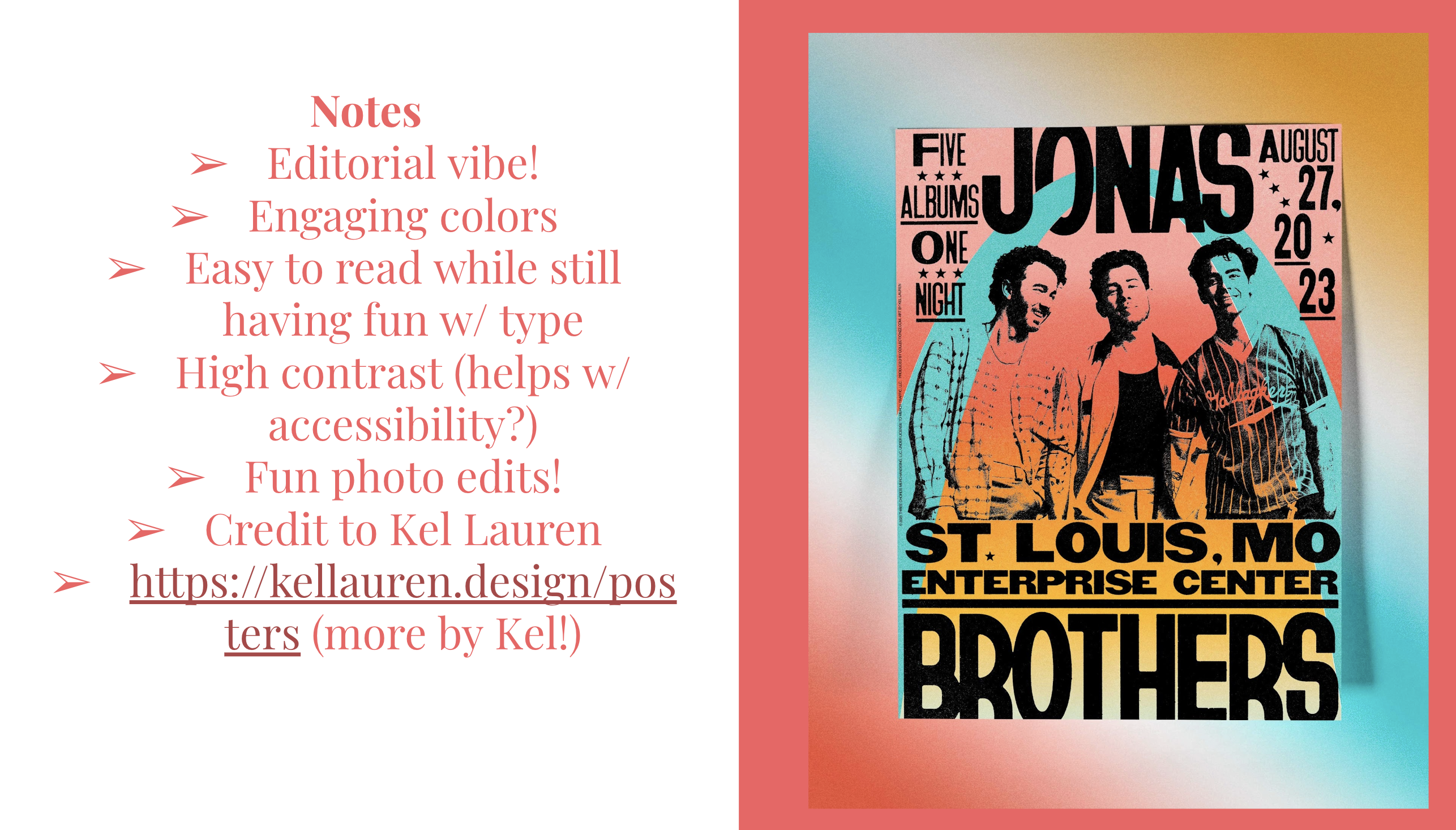
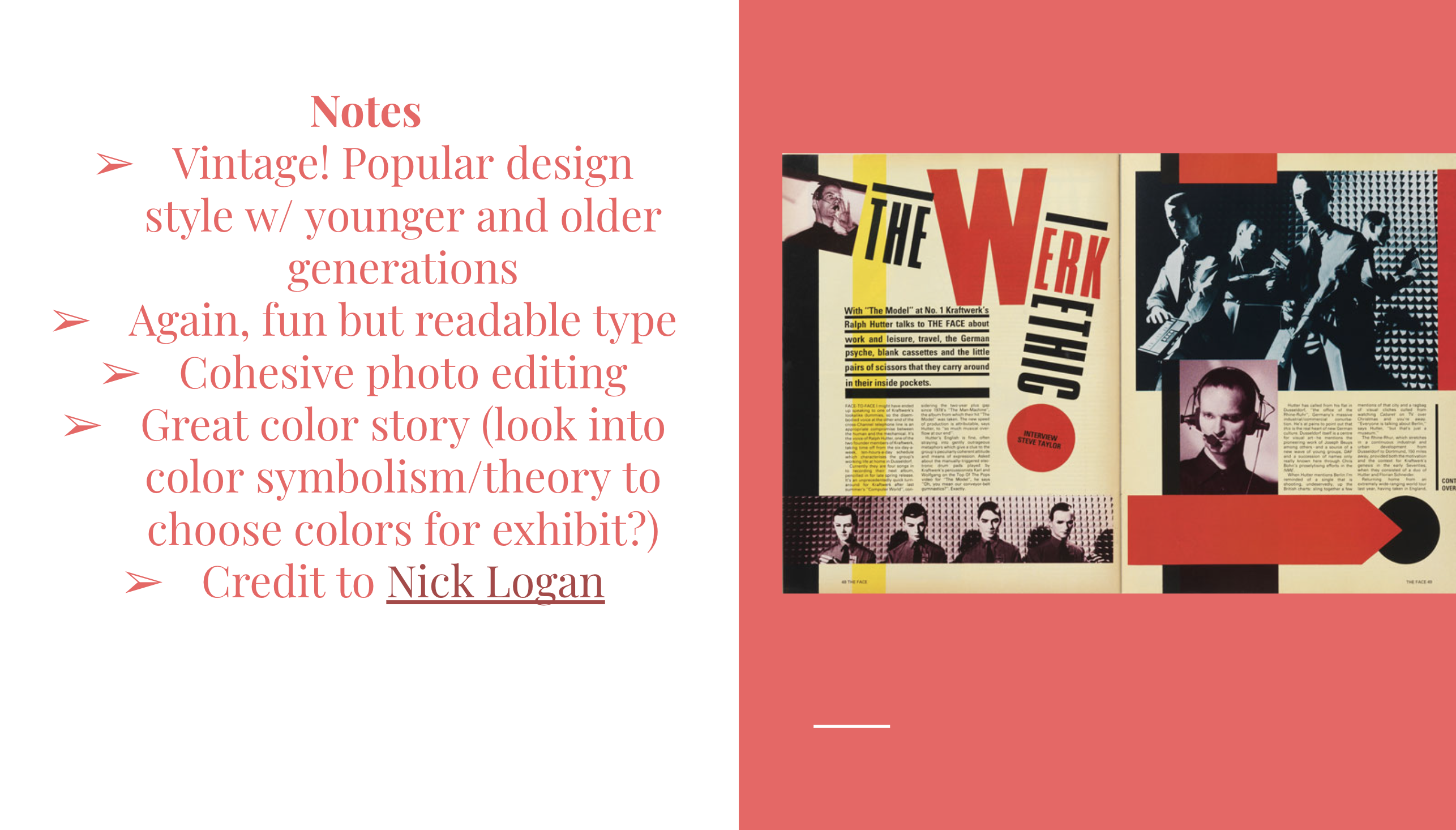
Some very early design inspiration.
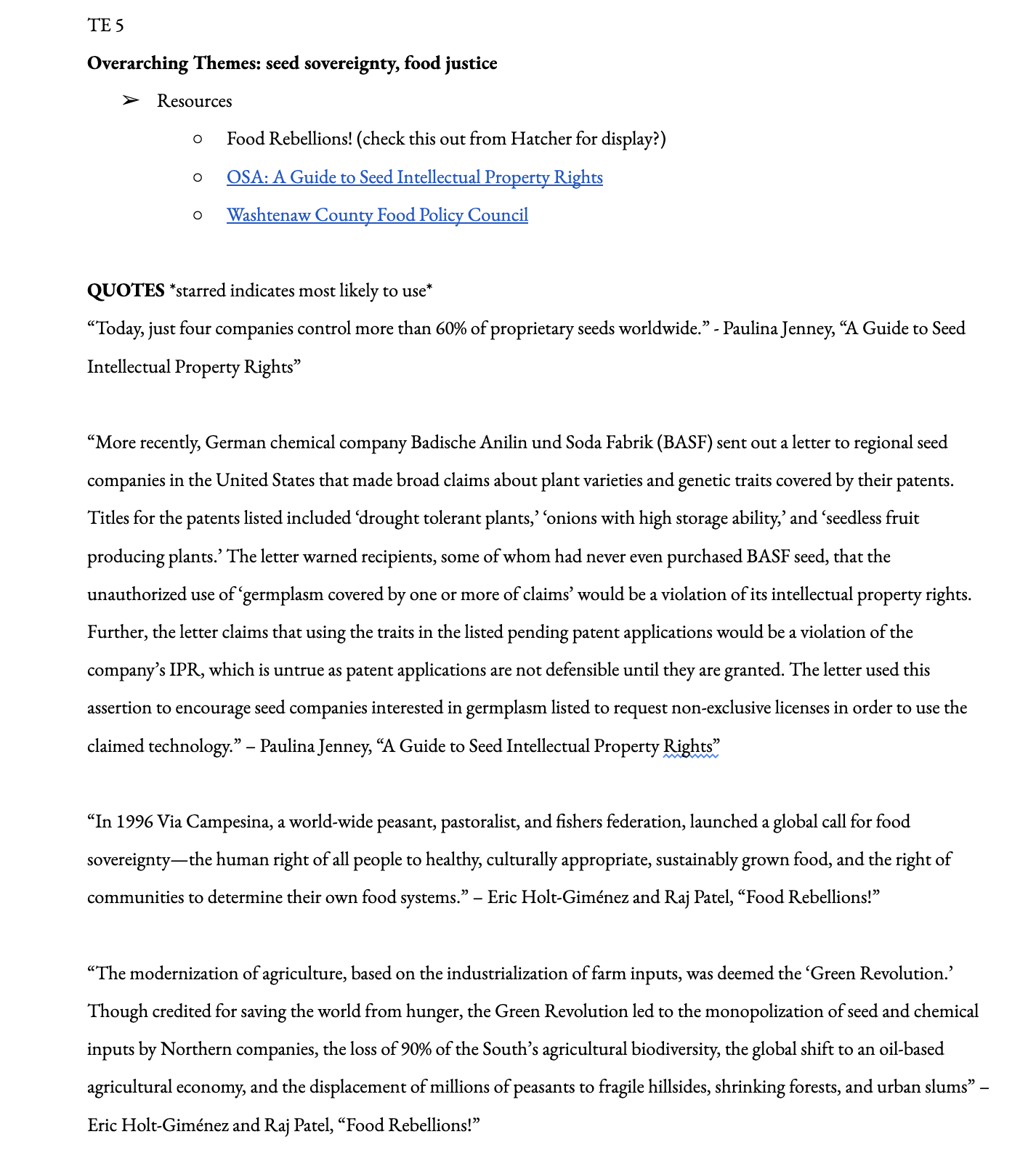
The initial “outline” for the panels.
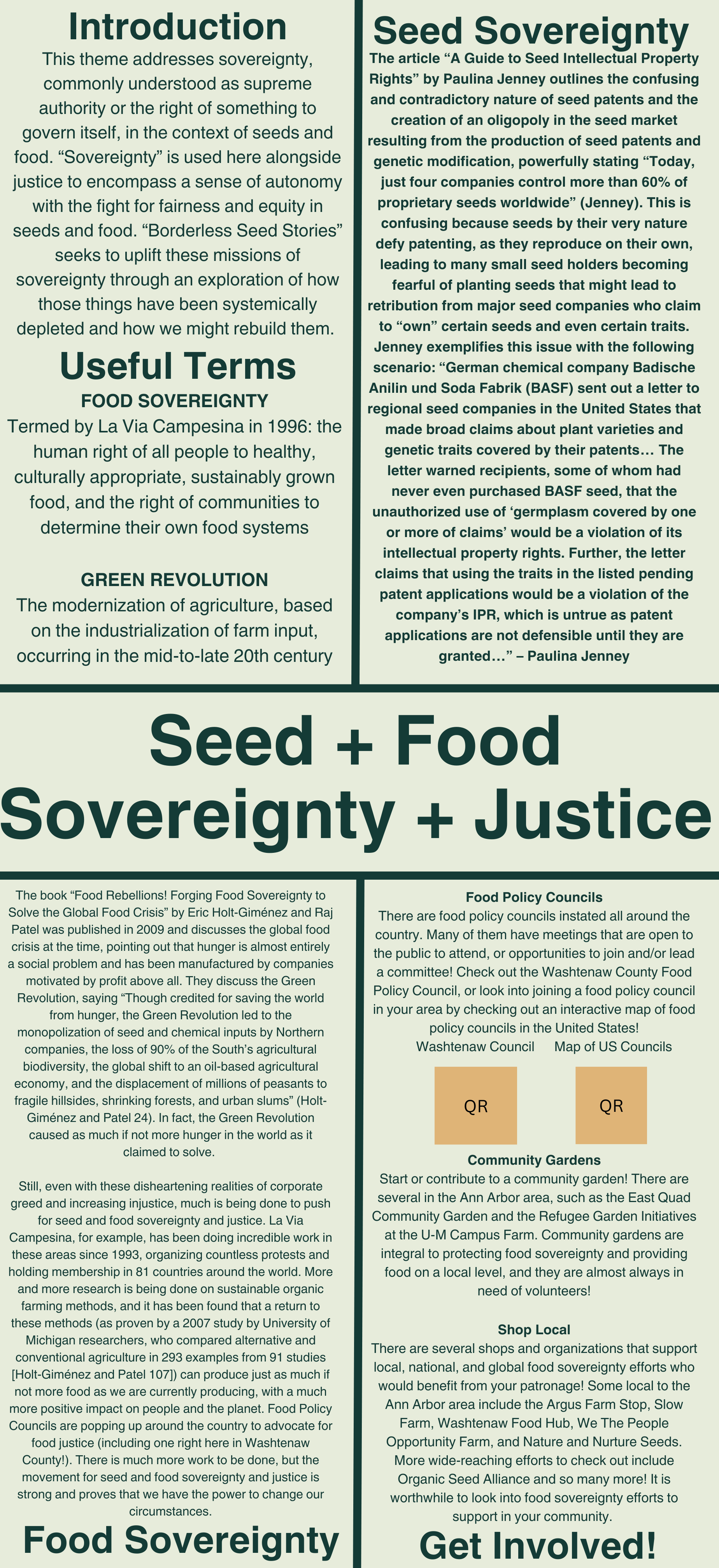
Panel draft.
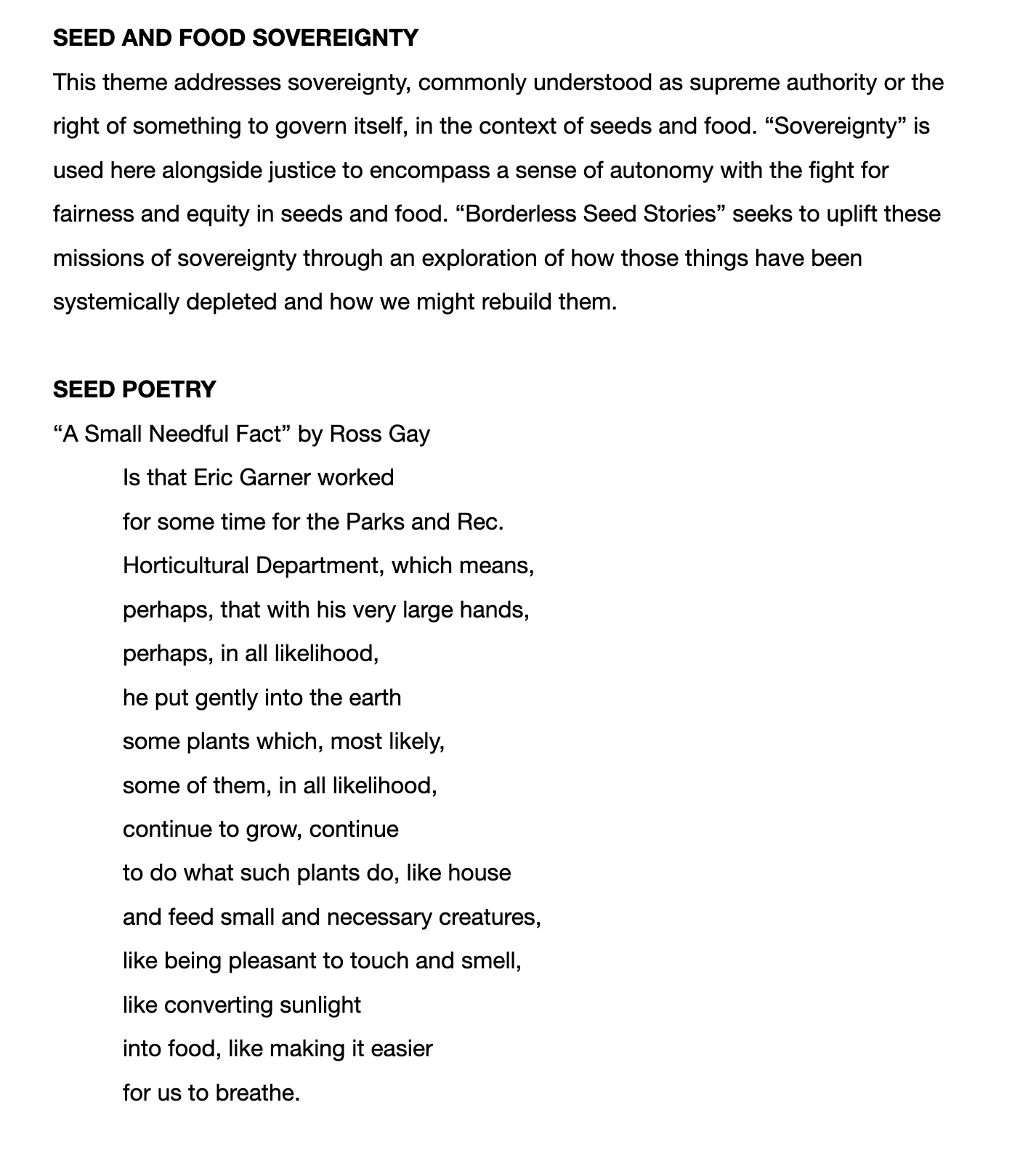
Just one of the 8 pages we ended up with for our final document draft (featuring some work from SJ!).
I encountered so many incredible materials through my research; just a few I’d recommend are A Guide to Seed Intellectual Property Rights, Palestine’s Seeds in Diaspora, and Sámi Land Defenders. These articles, among so many others, were huge in determining the direction I wanted to take with my research and the portions of the exhibit I wrote up.
Besides the literary and archival research, I also worked with the rest of the team on creating an Institutional Review Board (IRB) submission outlining what we were going to do with our research and providing an informed consent statement to make sure we were able to conduct the oral histories we planned on, consulted with the library copyright office to start the process of making sure everything we plan to use in the exhibit is good to go, worked with SJ to put together the “Community Conversation” and “Oral History Collection” panels, and miscellaneous tasks throughout that kept the project (and myself) running smoothly.
I learned so much in this role. As an aspiring academic librarian, this internship coached me through so many skills that will very much be a part of my future career, such as research, consolidation, working with a team, putting together exhibits, and more soft skills like time management, and most especially learning how to take time to rest. Coming into this internship, I struggled immensely with putting expectations on myself that I would never be able to accomplish, leading to constant burn-out, guilt, and an endless cycle of work and more work to try to satiate my perfectionist nature. Through the coaching of my mentors and the common experiences with SJ, I slowly learned that I was allowed to fail, I was allowed to function at 100% or even 50% instead of 200%, and most importantly, I learned how to rest and take care of myself. This work also taught me how excited I am for librarianship; though the work is deeply demanding and mentally challenging, it is also the most fulfilling work I have ever done, and I am elated at the chance to continue work like this for the rest of my life.
In my humble opinion, the impact of “Borderless Seed Stories” cannot be overstated. As a team, we spent weeks carefully considering our ethos, our language, and the impact our project would have on the Southeast Michigan community. At the end, we were able to present an exhibit with a deeply decolonial and anti-colonial, community-focused, justice and sovereignty-minded message. We were able to feature stories from community members that live and breathe that message every day, and in November, we’ll be able to present this message to our community with pride. I am so endlessly thankful for the opportunity to have worked on this project. Thank you, thank you, thank you to my mentors, Caylen and Krystel, my co-intern, SJ, the wonderful community members who contributed their stories to our project, and to all of the artists and scholars whose works provided the backbone for my research.